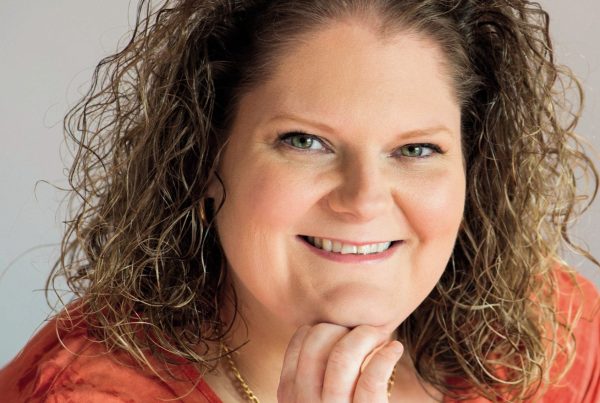An unsuccessful IVF cycle can be emotionally and financially devastating, nevertheless, it is no longer an assumption that IVF success rates are higher for infertile couples that go through multiple rounds. However, there are measures and steps you may take to ensure success. Many couples tend to get anxious and begin to seek help if there is no pregnancy after a year or more of marriage and persistent trying.
Infertility in Nigeria affects around 1 in 4 couples but we know that it is more prevalent than that because there was a recent study that mentioned about 31.3 percent infertility. It is established that the most effective method for treating infertility is still IVF especially in an environment like ours where tubal factor and sperm count is the problem. To treat these two the best way is still IVF.
The problem comes with how IVF is assessed. When you talk about the success rate of IVF, people want it to be about 80 percent, but we have to start from what we are comparing the success rate of IVF to. If we are comparing to the natural cycle, every month, it is 20-25 percent chance that a couple could be pregnant in their peak reproductive age; IVF can even give us 40 percent. It is doing better than nature, but now all over the world people have seen that there is a problem with IVF in the sense that many people do not do enough cycles in order to get the benefit of what IVF can deliver especially once there is a failed cycle. People drop out of IVF even in places where the services are available and accessible because psychologically, IVF takes a toll.
In a study done in Australia involving over 56,000 women who did IVF, it was observed that about 62 percent of them, if they had persevered, would have had a baby. This tells us that if you want to look at IVF, you are better off looking at the cumulative pregnancy rate – not one cycle because if you want to put is as 1+1, we can say if you are less than 35 years of age, if you do one cycle, your realistic success rate is about 35-40 percent, but if you do three cycles your success rate goes up to about 75 percent.
That is better than just doing one cycle. If these people who have about 45 percent don’t persevere enough they are not going to get up to that 75 percent. So the big question is how can people be encouraged to do enough cycles to give them a realistic chance of taking a baby home? In Nigeria where people pay out of pocket, one of the ways of encouraging people to embrace multiple IVF cycles is to have packages that would make it easier even financially to be able to do more than one cycle. Some people just save money for one cycle because they see IVF as the last resort and so once they raise money for one cycle, they come to the centre and once that fails, they will mope for two years and not do anything again.
The success rate of IVF is dependent on age. Imagine if the woman was 34 and she has a failed cycle which means she is at the peak and she goes home for two years to grief, rest more or gather money. For some people it is not money alone, they are just not emotionally ready. They are afraid of the failure which is not unnatural. One of the things we are trying to do in addition to reducing cost is to provide emotional support. But it is important to have enough information before starting. The more the number of cycles, the greater the chances of success, but that is like a bitter pill in a country like Nigeria in which many people are yet to fully understand what IVF is all about.
People need to understand how IVF works and appreciate what hurdles to cross in order to have success and also to prepare for them to do multiple cycles.
The overall success of IVF depends on a number of factors including the quality of the sperms and eggs, adherence to instructions by the couple and the choice of clinic. It is important to choose a good clinic and be realistic about your expectations. If is necessary to know the truth about success rates for IVF. There are centers that claim that if they do one cycle it is 70 percent but that’s not possible anywhere in the world. It’s not physiological. What I keep telling couples is that IVF success rates depend on the raw materials used.
These raw materials come from the man and woman (spermatozoa and eggs). So if you are 40, the best that you can be given is the success rate of a 40-year-old. But if you don’t choose a good clinic you might do 10 cycles and there would be no success at all. The first thing is the initial assessment of the couple. We need to do that initial assessment to determine, for instance, what kind of treatment you exactly need.
We may recommend donor eggs, we have people that are over 45years that have never been pregnant yet want to do IVF with their own eggs. From studies, people like that stand a better chance with donor eggs.
If as a couple you need a particular method and it’s not available in the clinic then it’s a waste of time. For instance, male infertility is so rampant here in Nigeria and all over the world, so how can you go to a clinic where they don’t have an Intracytoplasmic Sperm Injection (ICSI) machine? At Nordica Lagos, I can say almost 95 percent of our treatment for male factor infertility is ICSI.
It is the number of cycles that determine the success rate. So, when choosing clinics, look at the volume of cycles and the experience of the fertility specialist. Note that IVF success is not only about cost, you should also evaluate the clinic as mentioned earlier. Talk to the caregivers, if possible, go to their labs and see that they have what they claim they have before you entrust yourself to them.
When considering IVF, your odds of conceiving are about one in three and you need to do everything you can to improve your chances of success. The reason why a normal IVF success rate is low can be attributed to the fact that a fertile couple has only about a 15-20 percent chance of conceiving naturally. With the costs of fertility treatments and procedures going up, it’s beneficial to be well informed about making IVF successful the first time. Selecting a good IVF centre goes a long way in determining your chances of a successful pregnancy.






This is very good information and helpful.
Every educating teacher sir, but something needs to be done about the cost and we’d need promo too